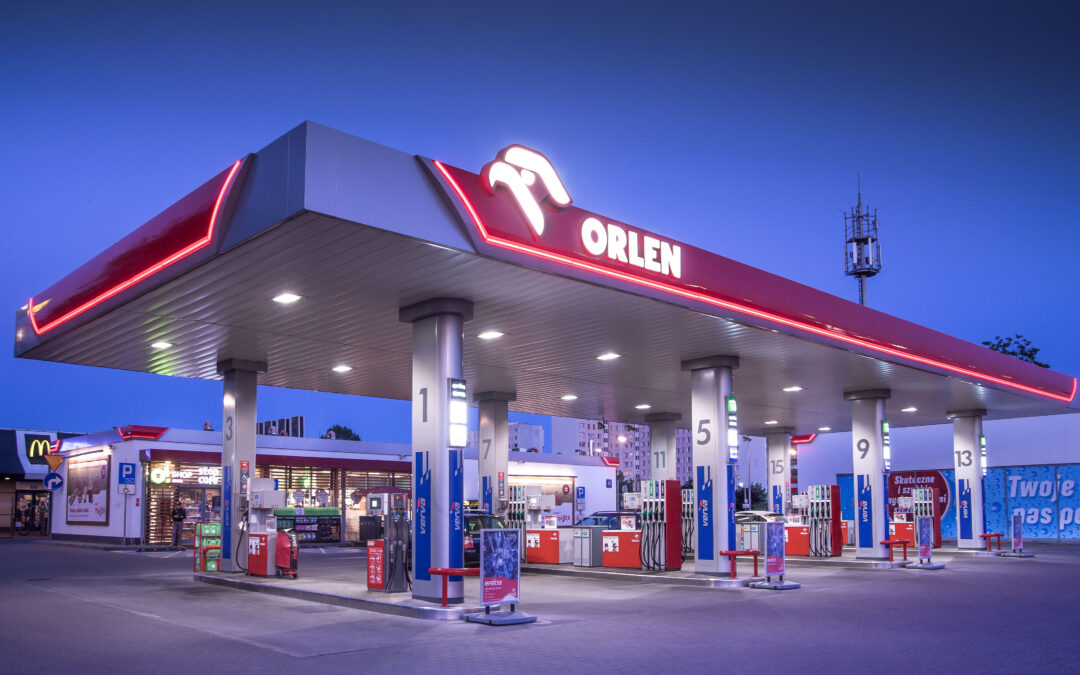Poland’s Supreme Audit Office (NIK) is seeking charges against the country’s largest company, energy giant PKN Orlen, after the firm refused attempts by NIK to audit it. But Orlen, which is almost 50% state owned, argues that the audits themselves had no legal basis and that it therefore could not cooperate with them.
NIK’s president, Marian Banaś, revealed on Monday that it had filed three notifications to prosecutors of its suspicion of an offence under article 98 of the Supreme Audit Office Act, which relates to obstructing and thwarting audits. He noted that NIK had unsuccessfully made two attempts to audit Orlen last year.
The audit office also filed eight further claims of other suspected offences, including one relating to a false accusation of a criminal offence after Orlen complained to the public prosecutor’s office about the authority’s inspectors.
The prosecutor’s office, however, refused to initiate proceedings in five cases brought by the NIK. Now, NIK has filed complaints in each of the cases to the district court in Warsaw and is prepared to file complaints in the remaining six cases.
Jako Prezes Najwyższej Izby Kontroli wykorzystam wszystkie środki prawne (krajowe i europejskie), aby zrealizować kontrole, które miały się odbyć w @PKN_ORLEN. Obywatele mają prawo wiedzieć, na co wydawane są publiczne pieniądze:https://t.co/2kMalGzVaR pic.twitter.com/L7RlBjQjXq
— Marian Banaś (@marian_banas) January 30, 2023
The first of two audit attempts concerned PKN Orlen’s and the Orlen Foundation’s spending on sponsorship, media activities, legal and consulting services, and the rules for granting donations to the foundation.
The second covered activities to improve fuel security in the oil sector and the recent merger process between Orlen and its state-owned rivals Lotos and PGNiG, NIK said. Following the takeovers, Orlen – whose CEO Daniel Obajtek is close to the ruling party – is 49.9% owned by the Polish state.
In a statement on Monday, Banaś – a former member of the government but who as head of NIK has become one of its opponents – said that in both inspections most companies involved with state ownership “prevented NIK inspects from commencing inspection activities” and failed to “provide relevant information”.
“The government wants to intimidate me, but it won’t work”: an interview with Poland’s state auditor
Banaś also criticised the actions of prosecutors, saying that “it is now almost the norm that in cases referred to the prosecution by NIK, investigators show little interest”. According to Banaś, only 2% of the notices sent by the NIK to the public prosecutor’s office end in indictments.
In Poland, prosecutors are under the ultimate control of the public prosecutor general, a position held by the justice minister, Zbigniew Ziobro, who is also the head of a junior party in the ruling coalition.
“In this context, it is puzzling that the prosecutor’s office reacted so quickly to the notices filed by Orlen against the auditors, who are being questioned in detail about their work activities,” added Banaś.
A public transport operator has called for an antitrust investigation into the "thieving monopoly" of state oil giant Orlen, saying it inflates prices
Opposition parties have issued similar demands, but the PM argues that Orlen has helped keep prices down https://t.co/Xvonrfkyz7
— Notes from Poland 🇵🇱 (@notesfrompoland) January 3, 2023
Orlen, however, argues that it is not a state institution but a company and that therefore NIK has no right to audit it without issuing a “summons to Orlen as an business”.
“Simply put, such an inspection would have been illegal,” argued Orlen’s lawyer, Krzysztof Wąsowski, quoted by RMF FM. “We get the impression that the constitutional body of state oversight, acting outside the law, is trying to force the illegality of such actions on the business during the inspection.”
NIK, however, rejected those arguments. “It should be emphasised that so far state-owned companies have not questioned the legal basis for inspections,” said Banaś, pointing to last year’s inspection of energy company Enea, in which the Polish state is a majority owner.
He also noted the inspection of the Ostrołęka C. power plant investment and the audit carried out one of Orlen’s subsidiaries, Inowrocławskie Kopalnie Soli.
Saudi Aramco and Hungary’s MOL have completed the purchase of Polish assets that was required for Orlen to take over Lotos
Aramco now owns 30% of the Gdańsk oil refinery while MOL is acquiring 417 petrol stations, making it Poland's third largest operator https://t.co/bKiaevPux9
— Notes from Poland 🇵🇱 (@notesfrompoland) December 1, 2022
Main photo credit: Orlen press pack

Alicja Ptak is deputy editor-in-chief of Notes from Poland and a multimedia journalist. She has written for Clean Energy Wire and The Times, and she hosts her own podcast, The Warsaw Wire, on Poland’s economy and energy sector. She previously worked for Reuters.




















